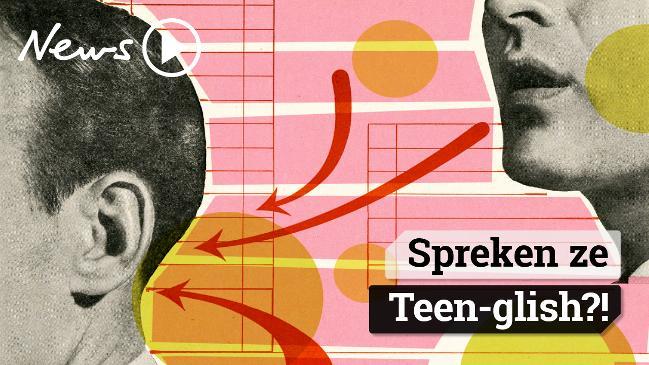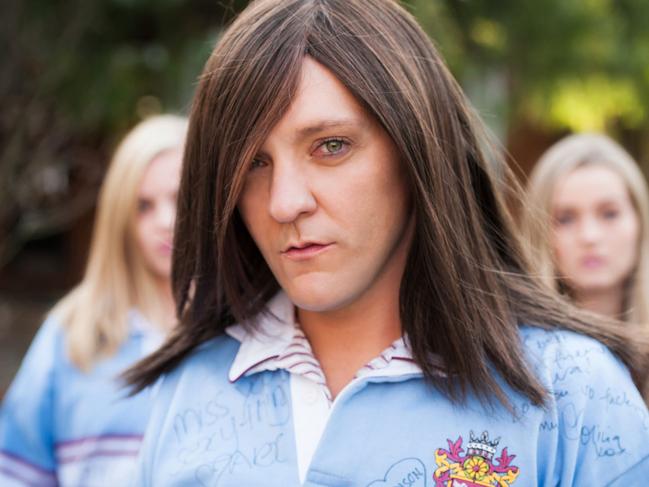This decade’s most genius words
From “facepalm” to “hot mess” and Kellyanne Conway’s “alternative facts,” the way we speak has never seemed more fun, writes David Mills.

Rendezview
Don't miss out on the headlines from Rendezview. Followed categories will be added to My News.
It happens every so often: you enter a restaurant at the exact moment the wait staff are off doing other tasks, so you take a seat, but as a result your arrival doesn’t register with anybody who might take your order, and hence they don’t. So you wait, and you wait some more, and it’s super-annoying.
We need a term for this phenomenon, and it’s surprising that we don’t, because we seem to have words for everything these days. We are living through what might just be the greatest boom period for wordsmithery since the time of Shakespeare. It’s been hectic. Hectic AF.
The past decade was tough and depressing in a lot of ways, full of pain and tragedy, but our use of language has never seemed so robust, finely targeted and playful.
MORE FROM DAVID MILLS: ‘The Horses’ is overrated and needs to die
This is the time that gave us such instant classics as facepalm, share plate, life hack, hot mess and big dick energy, as well as the Trump-era-defining fake news and alternative facts.
Technology has driven the creation of many useful new words and phrases, from infovore and instafamous through to crowd-funding, bingewatch and deepfake. It’s also popularised TL; DR (“too long; didn’t read”), the acronym you’ll find at the bottom of a lengthy online report, giving you the guts of the thing in one easy sentence.

Social issues have spawned their own set of terms, all extraordinarily rich in meaning. Thus somebody might mansplain a first world problem; or a cisgendered incel might slut-shame somebody who was non-binary, and that would not be woke.
Environmental issues have surfaced in the language in all kinds of ways, bringing us fracking and fatberg, as well as polar vortex, microplastics and the burgeoning literary genre of cli-fi.
Slang has gone completely rogue, devising new terms with precious little regard for the rules of spelling, grammar or social nicety.
Thus we have “the feels” (feelings); “thicc” (a woman with a voluptuous, full-bodied figure); “hench” (a muscular, fit-looking man); “bae” (a term of endearment that’s an abbreviation of ‘before anyone else’); “yasss” (emphatic agreement); and the acronymic “thot” (that ho over there).
MORE FROM DAVID MILLS: Why ‘Years and Years’ is the show of 2019
It’s also thrown up new meanings for old words, including “thirsty” (a too-obvious desire for something, especially of a sexual nature); “extra” (going a bit over-the-top); “lit” (excellent); “fire” (cool or great); “basic” (only interested in things that are mainstream, lacking sophistication); and “tea” (good gossip).
But don’t take those definitions as gospel, because the meanings of slang terms slip and slide all over the place. Take Netflix and chill, which had a straightforward meaning about watching TV during the noughties, but became imbued with sexual connotations in the 2010s. And slang begets more slang: the genius noughties-era word hangry produced prangry this decade, denoting the condition of being pregnant, angry and hungry, all at once.

Despite the increasing globalisation of English, Australia continues to coin its share of new phrases. (Indeed, one of the biggest words of the 21st century, selfie, has been traced back to an ABC online forum in 2002.) Tony Abbott popularised the term captain’s call, while it was a shame quiche (meaning a guy who was “better than hot”) from Chris Lilley’s show Ja’mie: Private School Girl never really took off. We did give the world the burqini, however, and we’ve taken to onesie and frothing with particular relish.
The popular appetite for fun new words has prompted many a writer, subject matter expert and casual tweeter to come up with their own, in the hope of catching the Zeitgeist. Virtue signalling is an exemplar of this trend, taking off big-time after it was used in a Spectator article in 2015.
MORE FROM DAVID MILLS: We must save celebrities from their tacky tattoo choices
On the other hand we have a term like milkshake duck. Coined by a comedian on Twitter, the concept refers to the modern phenomenon of a person or thing that generates buzz, only to be later exposed as having some hitherto-unnoticed but now-unforgivable negative trait. Despite its cleverness – and being named Macquarie Dictionary’s word of the year for 2017 – the term never really broke out of the Twitterverse.
But interestingly, some quite old and obscure sources have spawned popular new words this decade.

Take stan, a verb that describes obsessing in a crazed, fanlike manner, which comes from the Eminem song of the same name. The track was a number one hit way back in 2000, but the word’s usage in popular culture is a phenomenon of the late 2010s.
Another example is the voguish gaslighting, the term for manipulating somebody else into believing their take on events is wrong, or even crazy. It was short-listed for the Oxford English Dictionary’s word of the year in 2018, but its origin was the 1938 play and 1944 film Gaslight, about a husband who slowly convinces his wife she is going insane.
It’s a mystery why these older cultural artefacts are suddenly spawning new references, but it’s a sign of the fun and fertile nature of our language right now.
Given this trend, somebody really needs to make a movie about a group of people who enter a restaurant at the wrong moment and subsequently get ignored by the waiting staff.
It might make for a pretty boring cinematic experiment, but at least it will give us a word to describe that exact experience.
TL; DR: Lots of cool new words were born this decade. Go on, read the entire article; don’t be so basic.
David Mills is a columnist for RendezView.com.au.
Originally published as This decade’s most genius words


